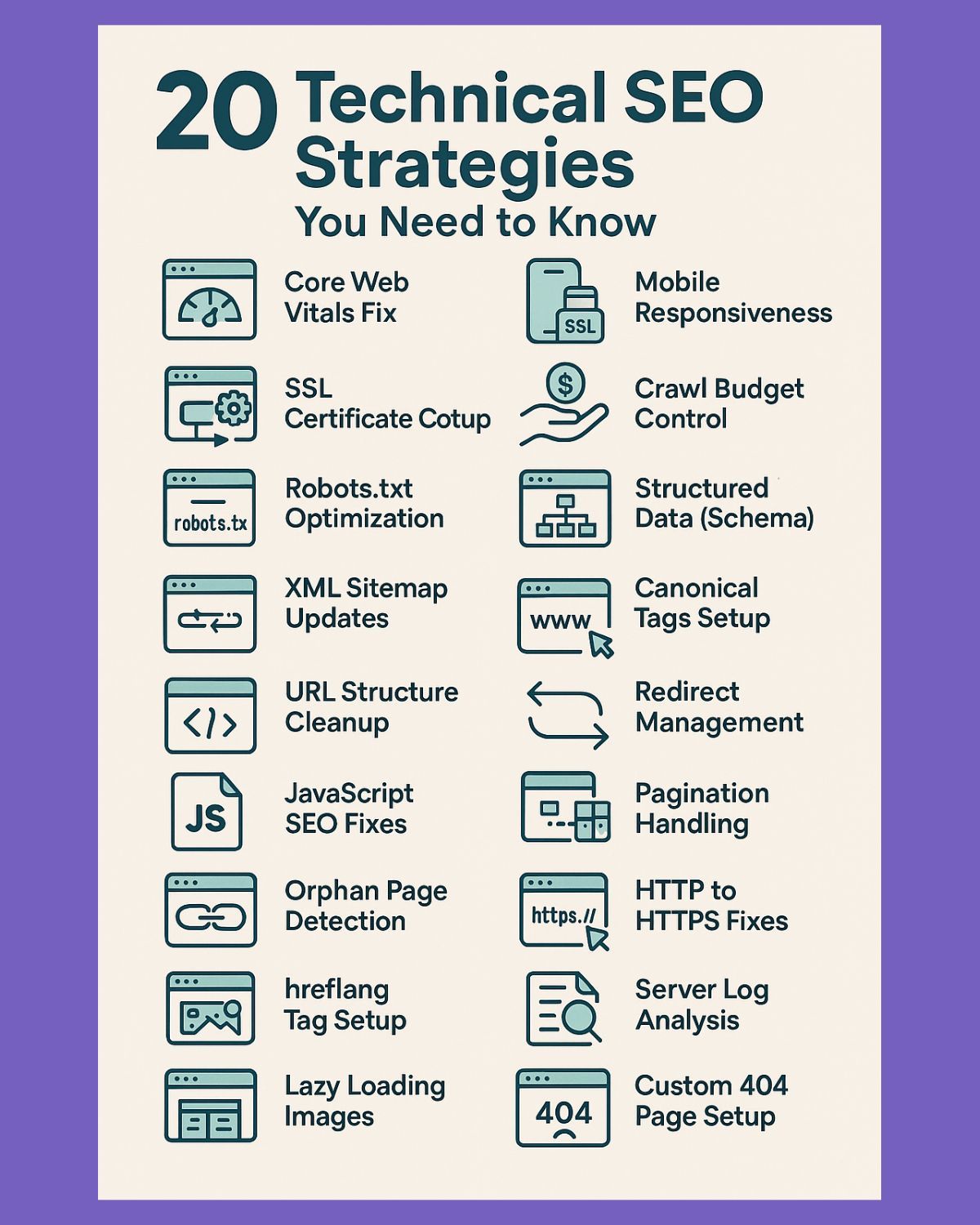Schema Markup: The SEO Superpower Your Website Needs?

Strong 8k brings an ultra-HD IPTV experience to your living room and your pocket.
Introduction
✍️ Search engines rely on clean site structures and optimized crawling paths to rank content. Discover the importance of technical SEO in ensuring that your website is fully crawlable, indexable, and optimized for Google’s latest algorithms.
If i were to be honest, getting your website to show up in search results is great, sometimes sensational, but it’s not the finish line. The real advantage comes when your pages stand out, not just show up.
That’s where schema markup (or structured data) comes in. Think of it as giving your website a way to speak more clearly to search engines.
Instead of just showing what words are on the page, schema helps explain what your content actually means. And when search engines understand that, they can show your pages with rich features *Rich Results*, like review stars, FAQs, or event info, that make your listings more eye-catching and useful.
What is Schema Markup: Speaking Search Engine Language
Schema Markup is a vocabulary (a set of tags or microdata) that you can add to your HTML to improve the way search engines represent your webpage in SERPs.
Okay but,What Exactly Is Schema Markup?
Think of Schema Markup as a way to label your content for search engines. It's a standardized vocabulary that allows you to provide context and meaning to your data. For example, you can tell Google that a number on your page is a price, that a phrase is an author's name, or that a block of text is a recipe.
This added layer of information helps search engines understand the entities on your page (people, places, things, events) and their relationships. It’s not about changing what your website says, but how search engines understand what it says.
Why Structured Data Matters for Enhanced SERP Features
The biggest benefit of implementing Schema Markup is the potential for rich snippets and other enhanced features in search results. These are visual enhancements that make your listing stand out from standard "blue links."
Examples include:
- Star ratings for product reviews.
- Prices and availability for e-commerce products.
- Event dates and locations.
- FAQs with collapsible answers.
- Recipes with cooking times and ingredients.
These rich snippets not only improve click-through rates (CTR) by making your listing more appealing but also provide direct answers to user queries, improving user experience.
How to create your Schema Markup
Implementing Schema Markup might sound complex, but with the right approach, it's a powerful tool in your SEO arsenal.
Choosing the Right Schema Types for Your Content
The first step is to identify the most relevant Schema types for your content. Schema.org, a collaborative community effort, provides a vast vocabulary of types. Common types include:
- Organization: For business details, logos, contact info.
- Product: For e-commerce items, including price, reviews, availability.
- Article: For blog posts, news articles, specifying author, publish date.
- LocalBusiness: For physical locations, including address, phone, opening hours.
- FAQPage: For pages with questions and answers.
- HowTo: For step-by-step guides.
Choosing the right type ensures you're giving search engines the most precise information about your specific content.
Implementing Schema: JSON-LD is Your Best Friend
While there are different formats (Microdata, RDFa), JSON-LD (JavaScript Object Notation for Linked Data) is generally recommended and preferred by Google. It's easy to implement as it can be directly inserted into the
or section of your HTML, without affecting the visible content of your page.You can manually write JSON-LD code or use schema generators (free online tools) to help you create it. Always ensure the data within your schema accurately reflects the visible content on your page.
Validating Your Schema Markup for Accuracy
After implementing Schema Markup, validation is crucial to ensure it's correct and readable by search engines. Google provides a free "Rich Results Test" tool where you can paste your code or URL to check for errors and see which rich results Google can generate from your schema.
Using this tool helps you debug any issues before deploying the schema, ensuring search engines can fully leverage the structured data you provide.
Beyond Basics: Advanced Schema Tactics for Enhanced Visibility
Once you master the fundamentals, advanced Schema Markup techniques can give your website a competitive edge.
Leveraging LocalBusiness Schema for Dominating Local Search
As for businesses with physical locations, Local Business schema is incredibly powerful. It allows you to mark up details like your business name, address, phone number (NAP information), opening hours, reviews, and even departments within a larger organization.
This structured data significantly enhances your visibility in local search results and Google Maps, making it easier for customers to find and contact you. It's a cornerstone for any local SEO strategy.
Product Schema: Driving E-commerce Success with Rich Snippets
For e-commerce websites, Product schema is a must-have. It allows you to display product details directly in search results, such as pricing, availability, and aggregate ratings (star reviews).
These rich snippets make your product listings far more compelling and can drastically increase click-through rates, leading to more sales. It gives potential customers key information at a glance, making their purchasing decision easier directly from the SERP.
FAQPage Schema: Winning More Screen Real Estate
If you have pages with a list of questions and answers, implementing FAQPage schema can lead to accordion-style rich snippets directly in the SERPs. This allows you to dominate more screen real estate, provide immediate value to users, and capture clicks from informational queries. It's an excellent way to address common customer questions upfront.
The Synergy of Schema and AI Search (SGE)
Schema Markup is set to become even more critical with the rise of Generative AI Search (SGE). AI models rely heavily on well-structured data to synthesize answers and generate AI Overviews.
By providing clear, explicit information through schema, you make it easier for AI to understand your content's entities and relationships, increasing the likelihood that your website will be cited as a source in AI-generated summaries. It's essentially "AI-proofing" your content.
Implementing Schema: What to Avoid and Who Can Help
While powerful, improper Schema implementation can be detrimental.
Common Schema Mistakes to Avoid
Inaccurate Information: Ensure the data in your schema matches the visible content on your page. Don't mislead search engines.
Invisible Schema: Don't mark up content that isn't visible to users. Schema should enhance, not hide.
Incorrect Nesting: Schema requires proper hierarchical nesting. Errors here can invalidate your markup.
Spammy Use: Don't use schema for irrelevant content or to try and manipulate rankings. This can lead to manual penalties.
Regularly validate your schema using Google's Rich Results Test.
When to Consult an Expert SEO Agency
Implementing complex Schema Markup, especially across a large website, can be challenging. For intricate scenarios, or to ensure perfect implementation, consulting with someone whose an expert in Website Optimization & SEO .
They have the technical expertise to:
- Identify all relevant schema types for your website and business.
- Implement JSON-LD correctly without errors.
- Validate the markup and ensure it triggers rich results.
- Monitor performance and adapt to algorithm changes.
Conclusion
In conclusion, Schema Markup mastery is no longer just an advanced SEO technique; it's a fundamental requirement for truly unleashing the power of structured data and securing enhanced SERP features for your website. By speaking the language of search engines through precise, validated schema, you make your content more understandable, more visible, and ultimately, more clickable. Investing time and expertise in implementing structured data not only helps you stand out in the competitive search landscape but also primes your website for the future of AI-powered search, ensuring your valuable content is always seen and understood. Don't let your website's hidden gems remain undiscovered—let Schema Markup illuminate them.
Note: IndiBlogHub features both user-submitted and editorial content. We do not verify third-party contributions. Read our Disclaimer and Privacy Policyfor details.







